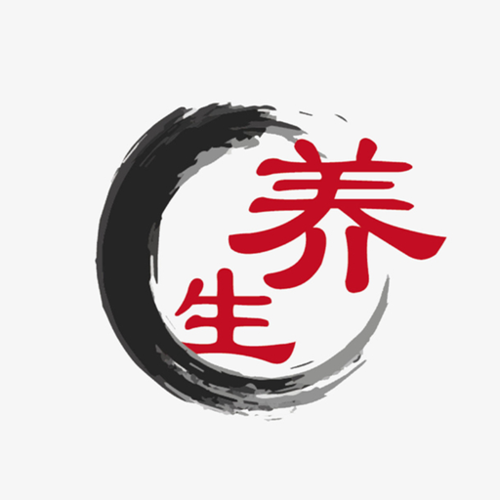Food Therapy
Food therapy, an ancient practice rooted in traditional Chinese medicine, has gained significant attention in recent years as people seek natural ways to improve their health and well-being. This approach to nutrition goes beyond simply counting calories or following fad diets; it focuses on understanding the energetic properties of foods and how they interact with our bodies to promote balance and healing.
At its core, food therapy is based on the principle that food is medicine. Each ingredient we consume has unique properties that can affect our physical and mental state. By carefully selecting and combining foods, we can address specific health concerns and maintain overall wellness.
One of the key concepts in food therapy is the idea of "hot" and "cold" foods. This doesn't refer to the temperature of the food, but rather its energetic nature. For example, ginger and cinnamon are considered "hot" foods, while watermelon and cucumber are "cold." Understanding these properties allows us to balance our diets according to our individual needs and the seasons.
Another important aspect of food therapy is the concept of the five flavors: sweet, sour, bitter, pungent, and salty. Each flavor corresponds to different organs and bodily functions. By incorporating a variety of flavors into our meals, we can support overall health and address specific imbalances.
Implementing food therapy in your daily life doesn't have to be complicated. Start by paying attention to how different foods make you feel. Do you feel energized after eating certain meals, or sluggish after others? This awareness can help you make more informed choices about what to eat.

Chinese Herbal Medicine
Chinese herbal medicine is another powerful tool in the arsenal of traditional Chinese medicine. With a history spanning thousands of years, this practice utilizes a vast array of plant, animal, and mineral substances to promote health and treat various ailments.
Unlike Western medicine, which often focuses on treating specific symptoms, Chinese herbal medicine takes a holistic approach. Practitioners consider the entire body and its systems when prescribing herbal formulas. These formulas are carefully crafted to address the root cause of health issues while also supporting overall well-being.
One of the strengths of Chinese herbal medicine is its ability to be tailored to individual needs. A skilled practitioner will take into account a person's constitution, current health status, and specific symptoms when creating a formula. This personalized approach ensures that the treatment is as effective as possible.
Chinese herbs are typically used in combinations rather than individually. This is because herbs can work synergistically, enhancing each other's effects and mitigating potential side effects. Some common herbs used in Chinese medicine include ginseng for energy and vitality, astragalus for immune support, and licorice root for its anti-inflammatory properties.
It's important to note that while Chinese herbal medicine can be incredibly beneficial, it should be used under the guidance of a qualified practitioner. Some herbs can interact with medications or may not be suitable for certain health conditions. A trained herbalist can ensure that you're using herbs safely and effectively.
Integrating Food Therapy and Chinese Herbal Medicine
When combined, food therapy and Chinese herbal medicine create a powerful approach to health and wellness. Both practices share the same foundational principles of balance and harmony, making them natural complements to each other.

For example, if you're dealing with digestive issues, a practitioner might recommend a combination of dietary changes and herbal formulas. You might be advised to incorporate more warming foods like ginger and cinnamon into your diet, while also taking an herbal formula designed to strengthen the digestive system.
This integrated approach can be particularly effective for chronic conditions that may not respond well to conventional treatments alone. By addressing health concerns from multiple angles, we can often achieve more comprehensive and lasting results.
It's worth noting that integrating food therapy and Chinese herbal medicine into your life doesn't mean abandoning conventional medicine. Instead, these practices can work alongside modern medical treatments, often enhancing their effectiveness and reducing side effects.
As with any health practice, consistency is key when it comes to food therapy and Chinese herbal medicine. These are not quick fixes, but rather long-term strategies for promoting health and preventing illness. It may take time to notice significant changes, but many people report feeling more energized, balanced, and resilient after incorporating these practices into their lives.
In conclusion, food therapy and Chinese herbal medicine offer a holistic, natural approach to health that has stood the test of time. By understanding the energetic properties of foods and herbs, we can make more informed choices about what we put into our bodies. Whether you're dealing with a specific health concern or simply looking to optimize your well-being, these ancient practices have much to offer in our modern world. Remember, the journey to health is a personal one, and what works for one person may not work for another. Listen to your body, work with qualified practitioners, and be patient as you explore the rich world of food therapy and Chinese herbal medicine.
转载请注明:成都会所桑拿-四川成都休闲桑拿推荐论坛! » 武汉桑拿 » Food Therapy and Chinese Herbal Medicine: A Holistic Approach to Nourishing Your Body and Mind
版权声明
本文仅代表作者观点,不代表成都休闲网立场。
本文系作者授权发表,未经许可,不得转载。































